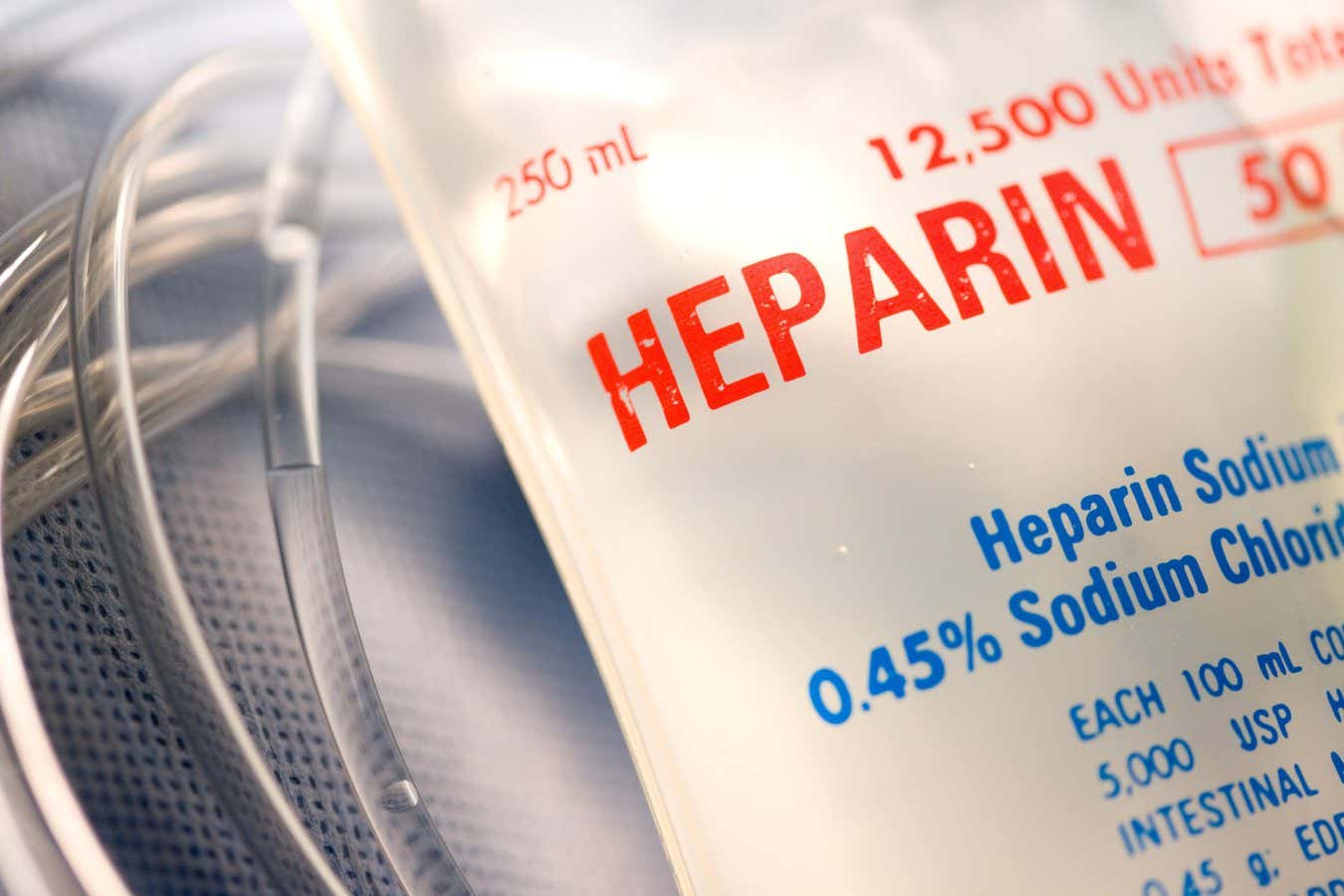A common anti-clotting drug called heparin is made from pig intestines, which risks contaminations and infections. A safer, synthetic version has now been developed but its production needs scaling up
By Michael Le Page
18 March 2024
Heparin prevents blood clotting and is used in many surgeries
Luca Medical / Alamy
A widely used anti-clotting drug called heparin is currently obtained from the intestines of a trillion pigs a year, which means there is a risk of accidental or deliberate contamination, as well as infections. Now, a way to make it synthetically could eliminate most of these risks.
“We think it could be sold within the next four to five years, maybe even less,” says Jonathan Dordick at the Rensselaer Polytechnic Institute in New York, whose team has developed a process for producing heparin from scratch.
The drug was discovered in 1916 and has been used since the 1930s to prevent blood clotting. It is used to treat a wide range of conditions, as well as during kidney dialysis and many kinds of surgery.
Advertisement
Read more
Is CBD a wonder drug or waste of money? Here's what the evidence says
The big advantage of heparin is that even large doses can be given safely. “It’s very difficult to have a dose that’s too much,” says Dordick. And if someone does get too much, another drug can reverse its effects.
By contrast, other anti-clotting agents, such as warfarin, can be fatal if too much is given and there is no antidote, he says, which is why warfarin is used as a rat poison.
